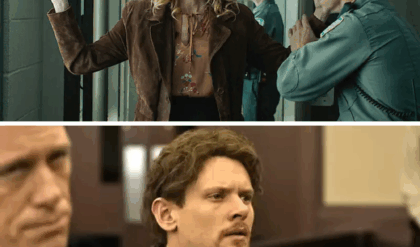It’s been a tumultuous year for 23-year-old actress Rachel Zegler, whose starring role in Disney’s live-action Snow White has been mired in controversy and commercial disappointment. Just two months after Snow White wrapped its theatrical run with a global gross of $205.1 million against a $270 million budget, Disney’s latest live-action remake, Lilo & Stitch, has delivered a staggering blow. In a mere four days over Memorial Day weekend, Lilo & Stitch grossed $341.7 million worldwide, surpassing Snow White’s entire box office total in record time. This dramatic disparity has reignited scrutiny on Zegler, with some fans and media outlets framing it as another “humiliation” for the young star. But is this narrative fair, and what does the success of Lilo & Stitch reveal about Disney’s evolving strategy for live-action remakes?

The numbers are stark. Lilo & Stitch, which opened on May 23, 2025, shattered Memorial Day box office records, earning $183 million domestically and $341.7 million globally over the four-day holiday weekend, as reported by Variety and Business Insider. This opening alone outgrossed Snow White’s entire theatrical run, which spanned several weeks but struggled to gain traction, starting with a modest $42.2 million opening weekend in March 2025 and dropping 66% in its second week, according to Collider. By contrast, Lilo & Stitch maintained strong momentum into its second weekend, adding $63 million domestically, bringing its global total to $610 million as of June 1, 2025, per Variety. The film’s success has been hailed as a triumphant return to form for Disney’s live-action division, especially after the lackluster performance of Snow White.
For Zegler, the comparison has been brutal. Social media platforms like X have been abuzz with posts highlighting the disparity, with some users claiming that Lilo & Stitch’s rapid success is yet another “humiliation” for the actress, who has faced relentless criticism since her casting as Snow White was announced. The backlash against Zegler began with racist attacks from toxic Disney fans over her Latina heritage, a controversy that escalated when she made comments about the original 1937 animated Snow White having outdated elements, as noted by SlashFilm. Further complicating matters, Zegler’s pro-Palestine stance clashed with co-star Gal Gadot’s Zionist views, leading to boycott calls and a fractured press tour, according to Daily Mail. These controversies, combined with the film’s middling 40% Rotten Tomatoes score and its failure to break even, have unfairly pinned much of the blame on Zegler, despite critics widely praising her luminous performance as the best part of the movie.
But the narrative of Zegler’s “humiliation” oversimplifies a much more complex story. While Lilo & Stitch’s box office triumph has undoubtedly cast a shadow over Snow White, the two films’ performances reflect broader trends in Disney’s live-action remake strategy, audience preferences, and the cultural resonance of their source material. A closer look reveals that Snow White’s failure and Lilo & Stitch’s success are less about Zegler and more about Disney’s approach to these projects—and the unpredictable nature of the modern theatrical marketplace.
Snow White, directed by Marc Webb, faced an uphill battle from the start. With a bloated $270 million budget—exacerbated by reshoots, labor strikes, and a fire on set—the film needed to gross at least $500 million to break even, a threshold it never came close to reaching. The film’s narrative changes, including the controversial CGI depiction of the seven dwarfs, alienated some fans of the 1937 classic, while its nearly century-old story struggled to connect with modern audiences, as noted by Variety. Zegler’s political comments and the public feud with Gadot further damaged the film’s marketability, making it a lightning rod for controversy rather than a celebration of Disney’s legacy. Despite Zegler’s strong performance, the film’s 66% second-weekend drop and its ultimate $205.1 million global gross marked it as one of Disney’s biggest live-action flops in recent years.
Lilo & Stitch, on the other hand, was a masterclass in strategic filmmaking. With a leaner $100 million budget, the film was positioned for profitability even with a modest performance. But its opening weekend far exceeded expectations, grossing $145.5 million in its first three days alone, outpacing the debuts of billion-dollar Disney remakes like Alice in Wonderland and Beauty and the Beast, according to ScreenRant. The film’s success can be attributed to several factors: its nostalgic appeal to millennials and Gen Z, who grew up with the 2002 animated classic; its family-friendly story of a young girl, Lilo, and her alien friend, Stitch; and Disney’s savvy marketing, which emphasized Stitch’s chaotic charm and the emotional depth of the found-family narrative, as highlighted by FandomWire. Unlike Snow White, Lilo & Stitch avoided divisive controversies, earning a 69% Rotten Tomatoes score from critics and a 94% audience score, per ScreenRant.
The timing of Lilo & Stitch’s release also played a crucial role. Memorial Day weekend 2025 saw a resurgent theatrical marketplace, with families eager to return to cinemas after years of post-pandemic hesitancy. The film faced stiff competition from Tom Cruise’s Mission: Impossible – The Final Reckoning, but its broad appeal and record-breaking $183 million domestic opening secured its place as the biggest Memorial Day debut in history, surpassing 2022’s Top Gun: Maverick, according to Variety. By its second weekend, Lilo & Stitch had already outgrossed Snow White’s entire run, a feat that took just ten days since its premiere on May 23, 2025—a stark contrast to Snow White’s six-week slog to reach $200 million, as reported by ScreenRant.
For Rachel Zegler, the comparison has been painful, but it’s worth examining whether she’s truly the one being “humiliated.” Critics have consistently praised her talent, from her breakout role in Steven Spielberg’s West Side Story to her complex portrayal of Lucy Gray Baird in The Hunger Games: The Ballad of Songbirds & Snakes. Even in Snow White, her performance was a highlight, with SlashFilm noting that she was the best part of the film despite its failure. The narrative of her “humiliation” seems to stem more from internet trolls and sensationalist headlines than from any objective assessment of her career. Zegler has already moved on, lining up new projects like the comedy-drama She Gets It From Me with Marisa Tomei and a theatrical revival of Romeo and Juliet with Kit Connor, as reported by SlashFilm. Her resilience in the face of adversity—racist backlash, political scrutiny, and now box office comparisons—speaks to her strength as an artist and a person.
The real lesson here may be for Disney. Lilo & Stitch’s success demonstrates the importance of selecting stories with cultural cachet for modern audiences, keeping budgets reasonable, and avoiding unnecessary controversies. The 2002 animated Lilo & Stitch has a devoted fanbase, with the franchise generating over 546 million hours viewed on Disney+ and $2.5 billion in retail sales in 2024 alone, per Deadline. Its live-action remake tapped into that nostalgia while offering a fresh take that resonated with families. Snow White, by contrast, struggled with a nearly century-old story that felt disconnected from today’s viewers, compounded by production challenges and public relations missteps.
The box office disparity between Lilo & Stitch and Snow White isn’t a personal indictment of Rachel Zegler—it’s a reflection of Disney’s uneven track record with live-action remakes. While Snow White stumbled, Zegler’s career is far from over. Her upcoming projects and the critical acclaim she’s received suggest she’s a talent to watch, not a star to pity. Meanwhile, Lilo & Stitch’s triumph in surpassing Snow White’s total gross in just ten days has set a new benchmark for Disney, proving that when done right, these remakes can still captivate audiences and dominate the box office. As the dust settles, one thing is clear: the story of Zegler’s “humiliation” is more clickbait than reality, and the true winner here is Disney’s ability to learn from its mistakes and deliver a hit that resonates across generations.





